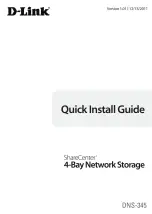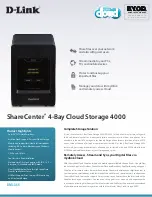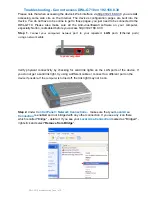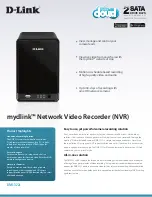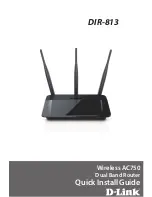
RUGGEDCOM ROX II
CLI User Guide
Chapter 13
Unicast and Multicast Routing
Configuring a Routing Interface
539
Lower values will also put limits on the number of routes that can be distributed within an OSPF
network area, as will running over slower links.
IMPORTANT!
The
dead-interval
and number of Hellos per second must be identical on every router in an
OSPF network area.
Parameter
Description
dead-interval { dead-interval }
Synopsis:
A 32-bit unsigned integer between 1 and 65535
Default:
40
The time before considering a router dead (in seconds).
minimal-hello-multiplier { minimal-hello-
multiplier }
Synopsis:
An 8-bit unsigned integer between 1 and 10
The number of times a hello message can be sent within one second.
4. Configure the interface settings by typing the following commands:
NOTE
Link detection is enabled automatically for active network interfaces. It makes sure the
appropriate routing daemon is notified when an interface goes down and stops advertising
subnets associated with that interface. The routing daemon resumes advertising the subnet when
the link is restored. This allows routing daemons to detect link failures more rapidly, as the router
does not have to wait for the
dead interval
to time out. Link detection also causes
redistributed
routes to start and stop being advertised based on the status of their interface links.
NOTE
The link cost determines which route to use when multiple links can reach a given destination.
By default, OSPF assigns the same cost to all links unless it is provided with extra information
about the links. Each interface is assumed to be 10 Mbit, unless otherwise specified by the
auto-
cost-bandwidth
parameter set for the interface. For more information about the
auto-cost-
bandwidth
Section 7.1.1, “Configuring Costing for Routable Interfaces”
The default OSPF reference bandwidth for link cost calculations is 100 Mbit. The reference
bandwidth divided by the link bandwidth gives the default cost for a link, which by default is 10. If
a specific bandwidth is assigned to each link, the costs take this into account.
Link costs can be assigned manually under OSPF to each routable interface. This should be done
when the speed of the link should not be used as the method for choosing the best link.
Parameter
Description
{ ifname }
Synopsis:
A string 1 to 32 characters long
Interface name.
authentication { authentication }
Synopsis:
{ message-digest, null }
The authentication type on this interface.
cost { cost }
Synopsis:
A 32-bit unsigned integer between 1 and 65535
The link cost. If not set, the cost is based on calculation of reference bandwidth divide by
interface bandwidth.
hello-interval { hello-interval }
Synopsis:
A 32-bit unsigned integer between 1 and 65535
Default:
10
The time (in seconds) between sending hello packets.
priority { priority }
Synopsis:
An 8-bit unsigned integer between 0 and 255
Summary of Contents for RUGGEDCOM ROX II
Page 2: ...RUGGEDCOM ROX II CLI User Guide ii ...
Page 4: ...RUGGEDCOM ROX II CLI User Guide iv ...
Page 39: ...RUGGEDCOM ROX II CLI User Guide Table of Contents xxxix 19 5 VLANs 752 ...
Page 40: ...Table of Contents RUGGEDCOM ROX II CLI User Guide xl ...
Page 46: ...Preface RUGGEDCOM ROX II CLI User Guide xlvi Customer Support ...
Page 170: ...Chapter 5 System Administration RUGGEDCOM ROX II CLI User Guide 124 Deleting a Scheduled Job ...
Page 256: ...Chapter 6 Security RUGGEDCOM ROX II CLI User Guide 210 Enabling Disabling a Firewall ...
Page 402: ...Chapter 11 Wireless RUGGEDCOM ROX II CLI User Guide 356 Managing Cellular Modem Profiles ...































